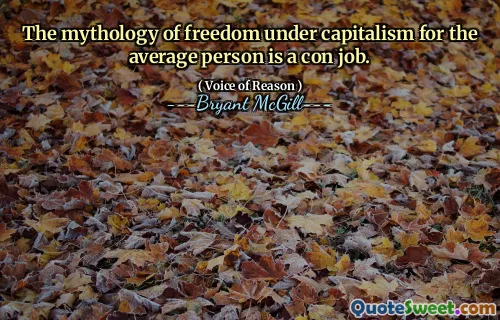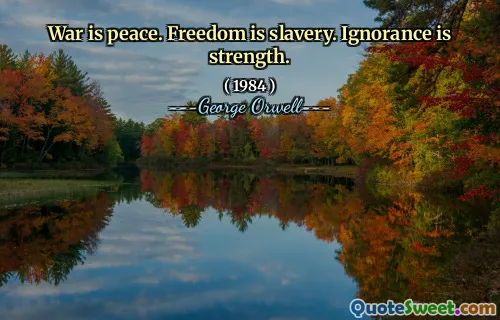
The mythology of freedom under capitalism for the average person is a con job.
This quote incisively challenges the widespread belief in capitalist societies that economic freedom correlates directly with personal freedom for everyone. It forces us to question the veneer of liberty promoted in such systems, revealing that for many people, particularly those not in positions of wealth or power, this perceived freedom may be illusory. The term "mythology" emphasizes that what is presented as an unquestionable truth is actually a constructed narrative, perhaps designed to maintain the status quo by obscuring systemic inequalities. Reflecting deeper, it suggests that although capitalism promises choice and opportunity, it often falls short in delivering true autonomy to the average individual because structural barriers limit their real options.
The use of the phrase "con job" is particularly provocative. It indicates a deliberate deception rather than an innocent misconception, implying that those who benefit most from this system foster and perpetuate these myths to keep others compliant or distracted from underlying injustices. It raises essential questions about what freedom genuinely means and if economic freedom within capitalism is sufficient or superficial without addressing issues like income disparity, access to resources, and social mobility.
This perspective invites a critical examination not only of capitalism but also of how societies define and measure freedom. It pushes readers to think about how to create a society where the average person is not just nominally free in theory but practically capable of pursuing their aspirations without systemic hindrances. Ultimately, the quote calls for awareness and discourse around the assumptions we accept about freedom, encouraging us to question dominant economic narratives for a more equitable future.







